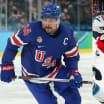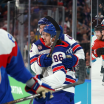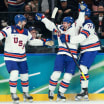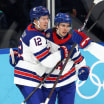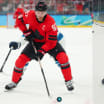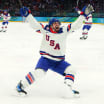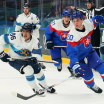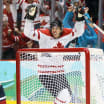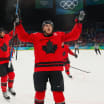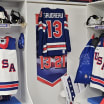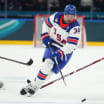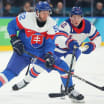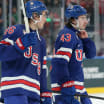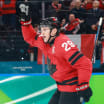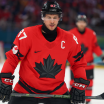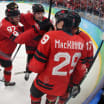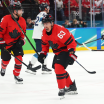NHL players' desire to compete in 2022 Beijing Olympics led to agreement
'We understood the importance' of taking part despite COVID-19 risks, deputy commissioner says
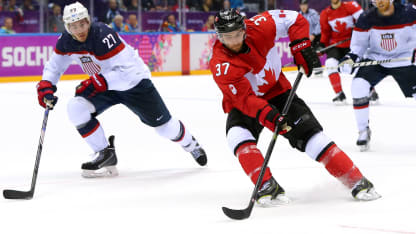
The guest was Rene Fasel, president of the International Ice Hockey Federation.
That afternoon, the IIHF, NHL and NHL Players' Association held what turned out to be perhaps the most important meeting of a months-long process that culminated in the agreement announced Friday allowing NHL players to participate in the 2022 Beijing Olympics.
It was the first time that representatives of the three parties could sit in the same room and identify the issues that needed to be resolved, the most important being the COVID-19 pandemic.
"There is risk involved with going to these Olympics," Daly said. "Everybody recognizes that, so much of the negotiation between all three parties was the fair allocation of that risk."
NHL players participated in five Olympics from 1998-2014 but not in PyeongChang in 2018. The NHL's position has been that competing in the Olympics disrupts the NHL season, particularly when not held in North America.
The pandemic added to the argument against participation in Beijing.
But the players highly value Olympic participation, and when the NHL and NHLPA extended the collective bargaining agreement last year though the 2025-26 season, the parties agreed to go to the Olympics if they could reach an agreement with the IIHF.
"We understood the importance of this to the players, and we made a commitment that if we could achieve terms that were satisfactory that we would agree to shut down our season and allow players to participate," Daly said. "I really view this as us making good on that commitment.
"I think we all have a high level of concern about whether these are the appropriate Games at the appropriate time, but given the players' overwhelming interest in going, we felt it was important to extend ourselves to make sure it happened."
Daly said the NHL made modest gains in negotiations with the IIHF regarding media rights, allowing the League to use some footage and still photos of Olympic competition on its platforms.
Still, the NHL is scheduled to shut down its regular season from Feb. 3-22 for the 2022 Honda NHL All-Star Weekend at T-Mobile Arena in Las Vegas and the Olympic men's hockey tournament.
And COVID-19 creates many complications.
Players will have their NHL contracts insured in the event of injury as in prior Olympics, covered by the IIHF or national federations.
But there is no insurance for COVID-19, and players will not be paid if they miss NHL games after Beijing for COVID-19 reasons. The IIHF has agreed to create a $5 million fund to help cover lost NHL salaries due to COVID-19, provided players contract COVID-19 at the Olympics while following protocols.
The protocols are a work in progress but expected to be extremely strict. All personnel likely will have to be fully vaccinated; undergo daily testing and frequent temperature checks; social distance and wear masks; and wear GPS devices to assist with contact tracing and protocol compliance. Everyone is expected to be confined to a tight bubble and restricted within it. It seems unlikely guests will be allowed.
One of the last issues to be resolved with the IIHF was the right to opt out. The NHL and NHLPA can withdraw for reasons such as the COVID-19 situation or protocols. The League can cancel player participation if regular-season games must be canceled due to COVID-19 and cannot be rescheduled within a schedule with an Olympic break. The decision can be made at any time but most likely would be made by early January.
"The IIHF understood our need to have that flexibility," Daly said.
The hope is that the Olympics will fit into a 2021-22 NHL season that will be played in full and feel more normal, after the past two seasons were disrupted by the pandemic. The regular season opens Oct. 12, when the Lightning host the Pittsburgh Penguins and the Seattle Kraken debut as an expansion team at the Vegas Golden Knights.
"We were able to issue, after a very extensive and prolonged back and forth (with the NHLPA), protocols associated with the upcoming season," Daly said. "All the clubs are familiarizing themselves with that. We know that the levels of COVID have been increasing in certain areas, and the protocols are meant to address that trend to a certain extent.
"Obviously, there is a high level of emphasis on everybody associated with the game and the League becoming vaccinated as quickly as we can really to minimize health risk. I think we'll be in pretty good shape by the start of training camp in terms of the percentage of our population that will be fully vaccinated. I expect 95 percent of our players will be fully vaccinated, so I think we're in as good a spot as we can be, and hopefully it improves as we move on."
